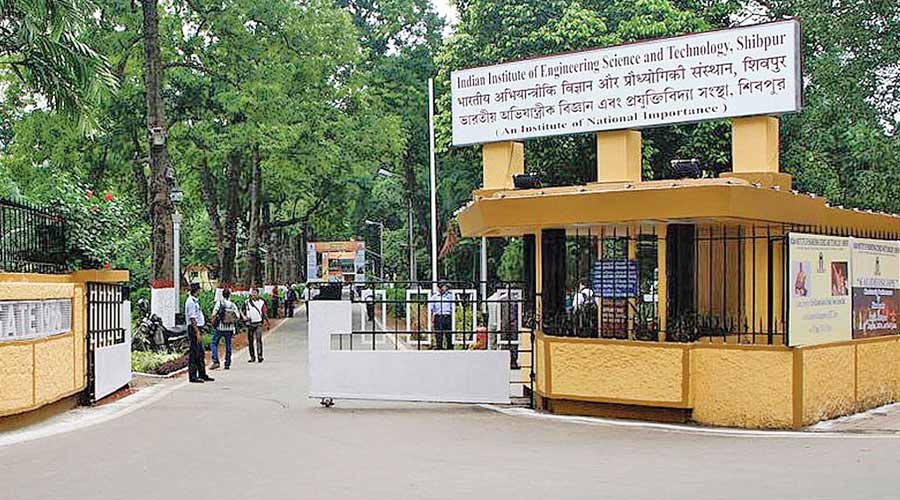IIEST, Shibpur, will arrange drinking water facilities within seven days and furniture within 15 days when 60 second-year students begin to stay at the makeshift hostels, the institute’s dean of students said on Saturday.
“We will try to provide furniture within 15 days from the start of the hostel (April 18). Drinking arrangements will be made within seven days...,” dean Sudipta Mukhopadhayay said.
The Telegraph had reported on Monday that IIEST has told second-year students that they would be accommodated in hostels that lack network, dining, drinking water facilities and furniture.
Junior Union education minister Subhash Sarkar was on the campus on Saturday. When he was asked about the hostels at a news conference, the dean, who was seated next to the minister, chose to respond.
“This accommodation has been provided only for 60 students....Setting up the Internet faculties will take some time…..We are trying to extend other facilities as early as possible,” said dean Mukhopadhayay, who is also the chief warden.
The dean later clarified that setting up the dining facilities at the staff quarters that have been turned into a makeshift hostel for the second-year students will take some time.
“Dining facility from the nearby hostel located within a short distance will continue for the rest of the semester. Since quarters were converted, no dining room facility is available there” the dean said .
The authorities are bringing students to the campus in phases as they are getting ready to hold the end-semester exams on the campus and start in-person classes in May.
Minister Sarkar said: “As a minister I can assure you work for setting up the hostel and renovating the existing will be expedited.”
The minister was asked why the IIEST has been sliding over the past three years in a ranking exercise carried out by the Union ministry. The institute was ranked 27th last year in the engineering category by the NIRF.
The minister asked IIEST director Parthasarathi Chakrabarti to respond. The director said: “We are lagging in infrastructure and faculty recruitment and trying to address the areas”.
